Today most foreign tourists in Japan usually have a cell phone, so it seems to be easy to get various kinds of information such as famous sightseeing spots and restaurants. Translation sites also may help them a lot. However, they might need locals’ help while travelling. You might be confused when you come across Japanese manners. The picture above shows one example. Japanese people keep pushing the elevator button to keep the door open for others. If you don’t speak Japanese that much and plan to travel in Japan, why don’t you memorize some Japanese words? I’d like to tell you three expressions here. As you know, Japanese people value being polite. These three ones I will tell are polite and formal.
※ All the models in the photos I took are my colleagues.
1. “Sumimasen” can mean ‘Excuse me,’ ‘Sorry,’ and ‘Thank you.’
“Suimasen” without the first ‘m’ is also fine. Though it’s a little more casual, it sounds almost the same. Let me give you some examples.
① Excuse me.
Most Japanese people know English words for greetings including “Excuse me,” but most of the people aren’t confident enough to speak English. Therefore, they may just wave their hand, which means “No” for Japanese, or bow and go away if foreigners talk to them saying, “Excuse me” in English. So, I recommend that you say “Sumimasen” first when you want to ask them something. Then, they will pause to listen to you, and you can show them the web sites or map to ask.
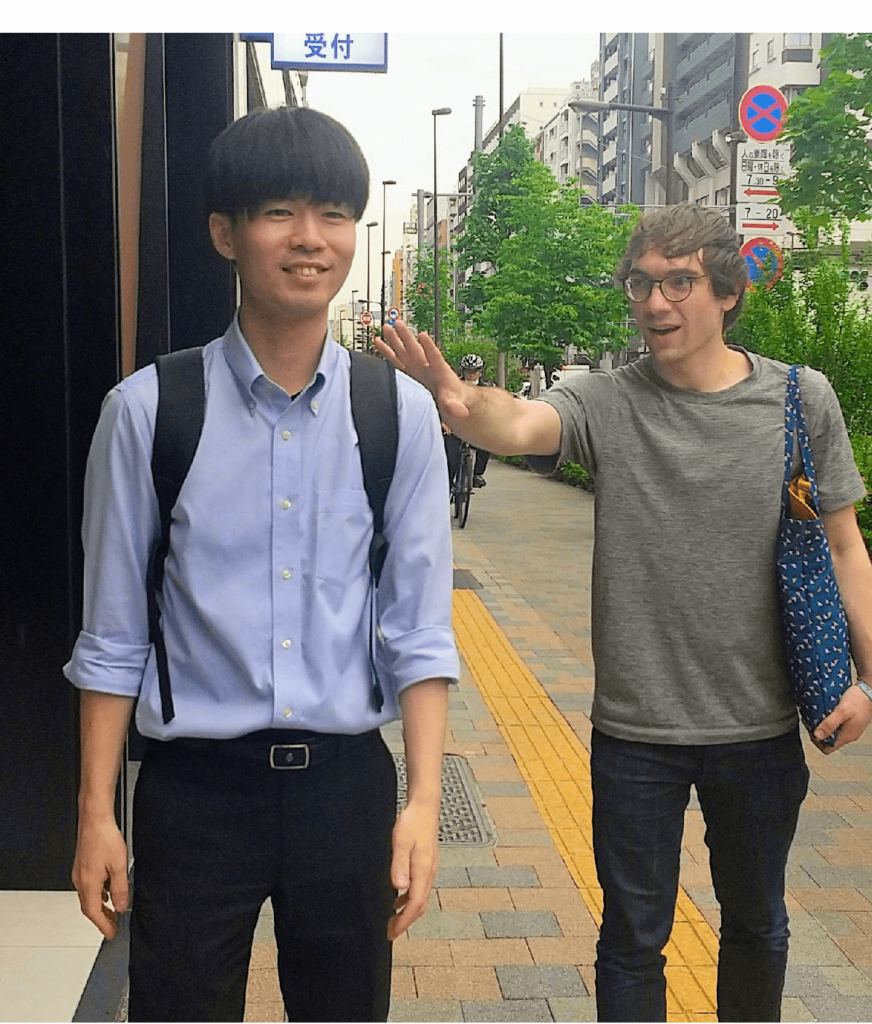
② Sorry.
Let’s say you bump into someone’s shoulder on the street. What do you say? “Gomen nasai” might be the most famous Japanese word to apologize, but we can use it only when we apologize. Besides, it sounds a little bit childish. So it’s more helpful to memorize “Sumimasen”, which also has the meaning of apology. Even if you say ‘Sorry’ or ‘Excuse me’ in English, Japanese people understand its meaning, but please try to say “Sumimasen”. The Japanese will nod with a smile or say ‘Hi’ which means ‘Yes’ or ‘OK’ in Japanese.

③ Thank you.
The Japanese word “Arigatou” is generally known as “Thank you.” But “Sumimasen” also works as “Thank you.” While walking in Japan, someone might stop and let you get through first on the sidewalk. Someone might pick up your train ticket you dropped and hand it to you. Someone may tell you the way to the station when you ask. You can say, “Sumimasen” in such cases as well. Plus, it’s more like Japanese(^-^) if you bow while saying so.
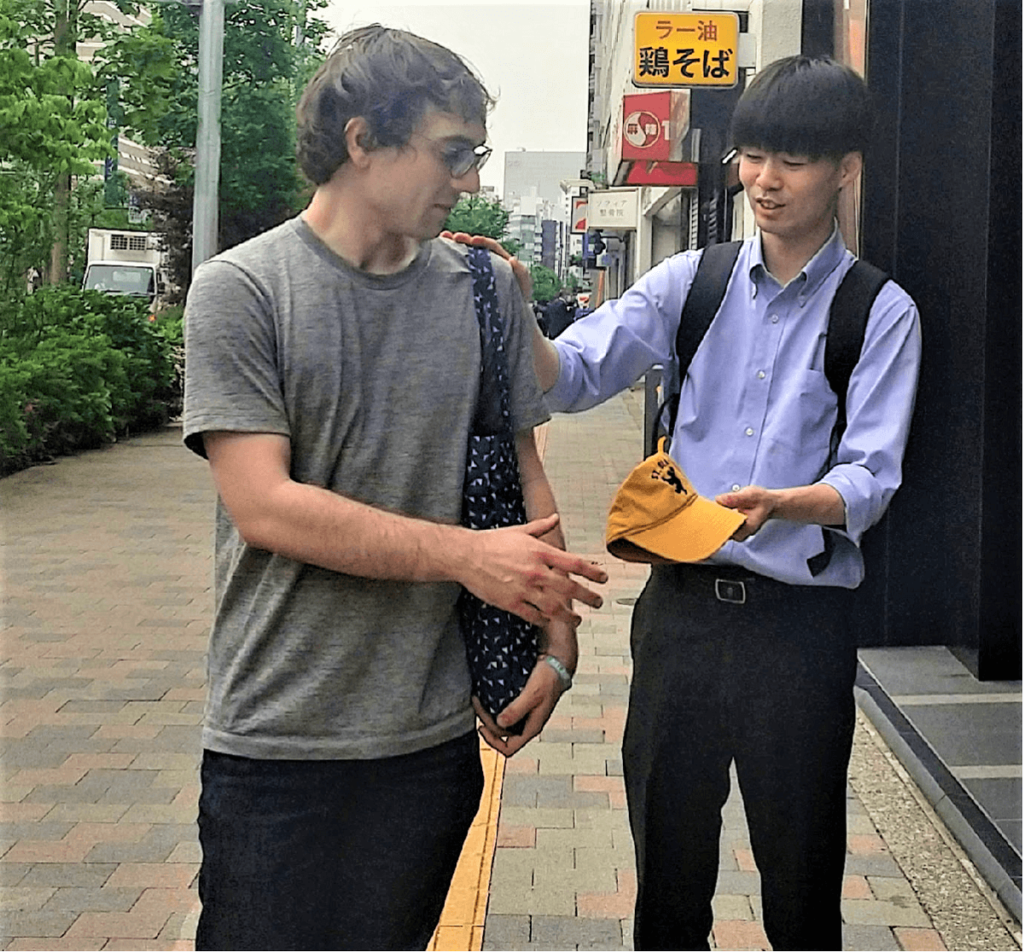
2. “Doko desuka, 〇〇?”
“Doko” is “where,” so this sentence means “Where is 〇〇?” While you are travelling, you might want to ask about some places. For example, “Where is the nearest bathroom?” “Is there any good restaurant near here?” “Where am I on this map?” and so on. At that time, this is really convenient.
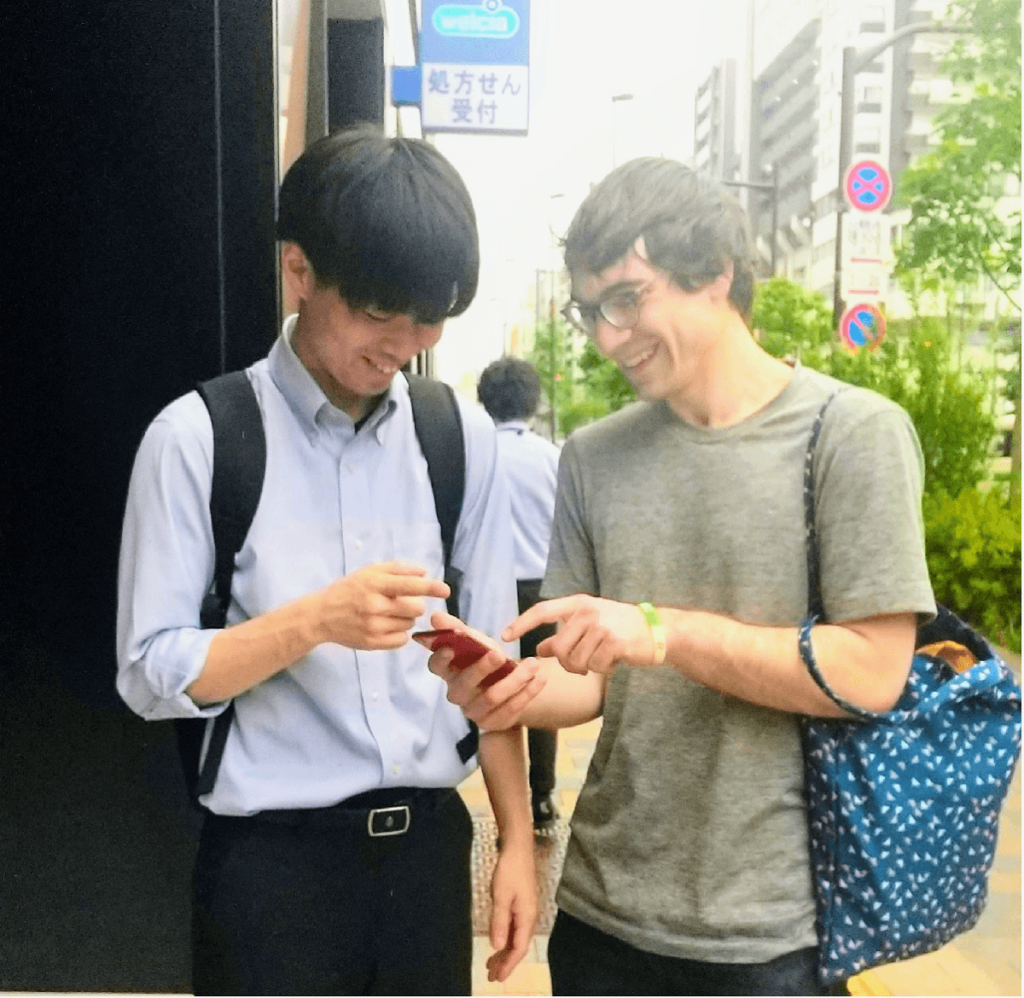
In order to show 〇〇(place), you can do a gesture, show the map or website, and draw a picture or something.
ex.
You: “Sumimasen.(Excuse me.)”
The man who is Japanese: “Hi.(Yes.)”
You: “Doko desuka?” showing the website of the shop on your cell phone. (Where is this Ramen shop?)
The man will look at the map on your phone and show you how to get there. If he should speak English, it would be better though.
3. “Onegai shimasu, 〇〇.”
You can use these words when you want to ask a favor or need help. “Onegai” means “request” or “asking”. “Shimasu” is the polite word that means “I do.”
Let’s say, you want to buy snack foods or drinks in a shop, but no shop person is at the cash register. Just saying, “Onegai shimasu” in a little loud voice means that you are calling the clerk to pay. Plus, you can say this at the restaurant when you want to ask a waitress to take an order or bring something.
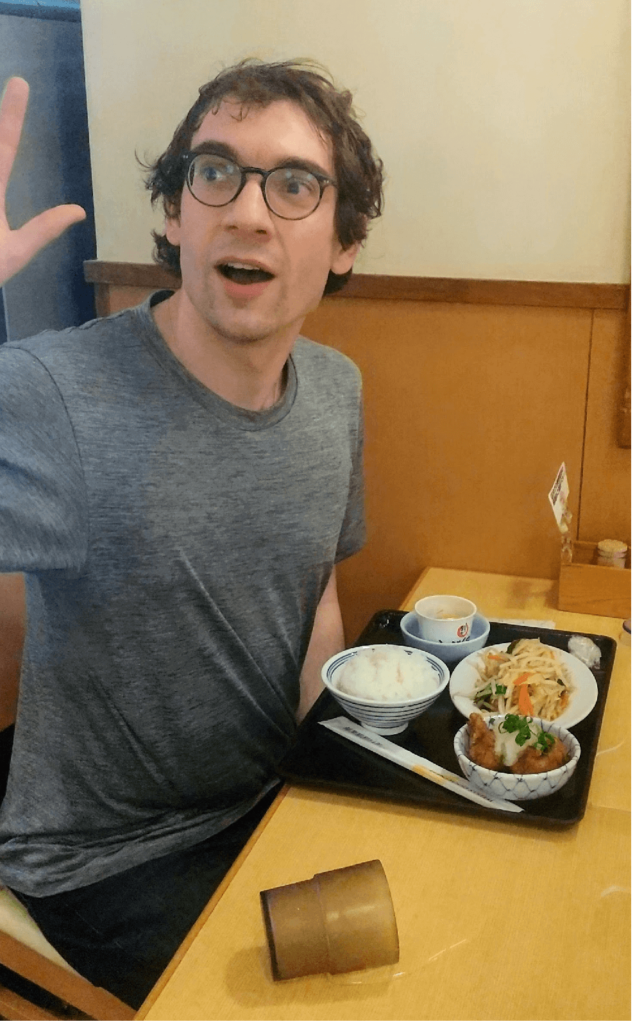
Moreover, you can put what you want in 〇〇 in the same way as 2 written above. For example, when you want someone to pass you the salt, it’s OK that you just say “Onegai shimasu” pointing to the salt shaker. What if you’re sitting on the train and the sun beam through the window on the other side is so bright? Why don’t you say, “Onegai shimasu” to the person who is sitting on the other side and gesture of putting down the curtain? The person probably would understand what you ask and put it down for you. You can also say, “Sumimasen” to show gratitude in this case.
Let me give you one more example. If you stay at a traditional Japanese style inn or cottage style hotel, please say, “Onegai shimasu” to the owner or staff after you tell your name. You would be more than welcomed. If you have any chance to join a party with Japanese, this word also works well when you introduce yourself to new people. It means “Please get along with me.”
【Bonus】
Foreigners who are in Japan often have trouble with the signs which are written in Chinese characters. I recommend memorizing the character「止」first. This means “stop.” You would see it on the streets. We are supposed to pause with this sign. There are electric toilets here and there in public places in Japan. You should tell which button is to stop water coming out if you try to use it. Let’s find this character when you travel in Japan. It would be fun too!
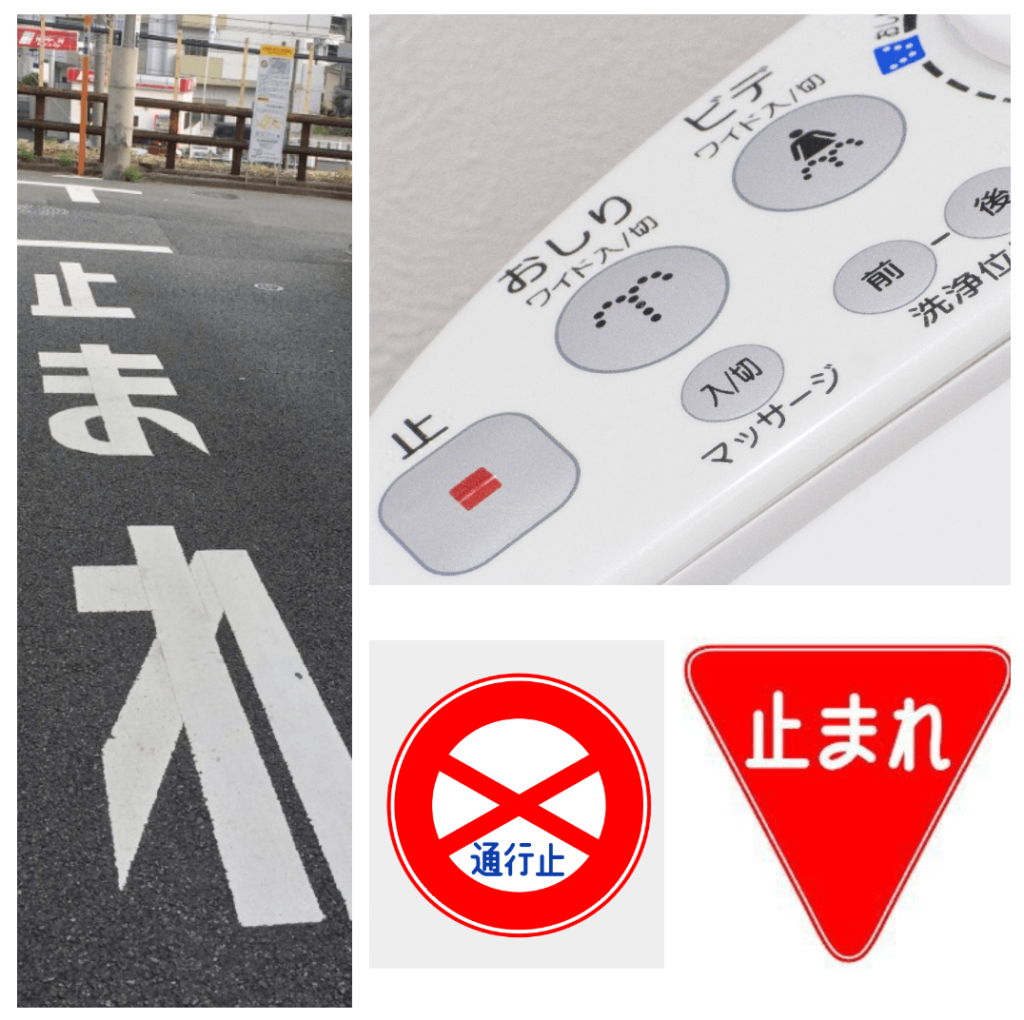
Thank you for reading my writing. Though most of the Japanese seem to be shy, we are willing to help foreigners. I hope you talk to us without hesitation and enjoy your stay in Japan! I’d like to write about helpful casual Japanese expressions next time.
Work as an English tutor at Labo Party. Live in Tokyo with my husband and daughter. My son studies traditional Japanese art in Kyoto. I’m hoping to introduce Japanese culture to foreigners with him.





 HTJ has a YouTube page! Check it out
HTJ has a YouTube page! Check it out